Biden pushes gun control in video statement honoring National Police Week
President Biden issued a video statement in honor of National Police Week saying the "answer is not to defund" law enforcement while also pushing for gun control.
Serbs have until June 8 to surrender all of their unregistered weapons in a push by the government to disarm society following back-to-back mass shootings.
Two mass shootings in consecutive days in early May rocked the Balkans nation, where the types of mass shootings seen so regularly in the United States rarely, if ever, happens.
A 13-year-old boy armed with his father’s pistol killed nine people, including eight children, at an elementary school in Belgrade on May 3. Just one day later, a 20-year-old killed eight and injured 14 in a rampage through a town just south of Belgrade.
In response to the twin tragedies, President Aleksandar Vucic set out on a mission to cleanse Serbia of firearms. Unlike most European countries, Serbia has many illegal guns throughout its society. Serbia has been awash in guns and the proliferation of firearms is mostly a legacy of the Yugoslav wars of the 1990s. Serbia is tied for third with Montenegro in gun ownership in the world, behind the United States and Yemen.
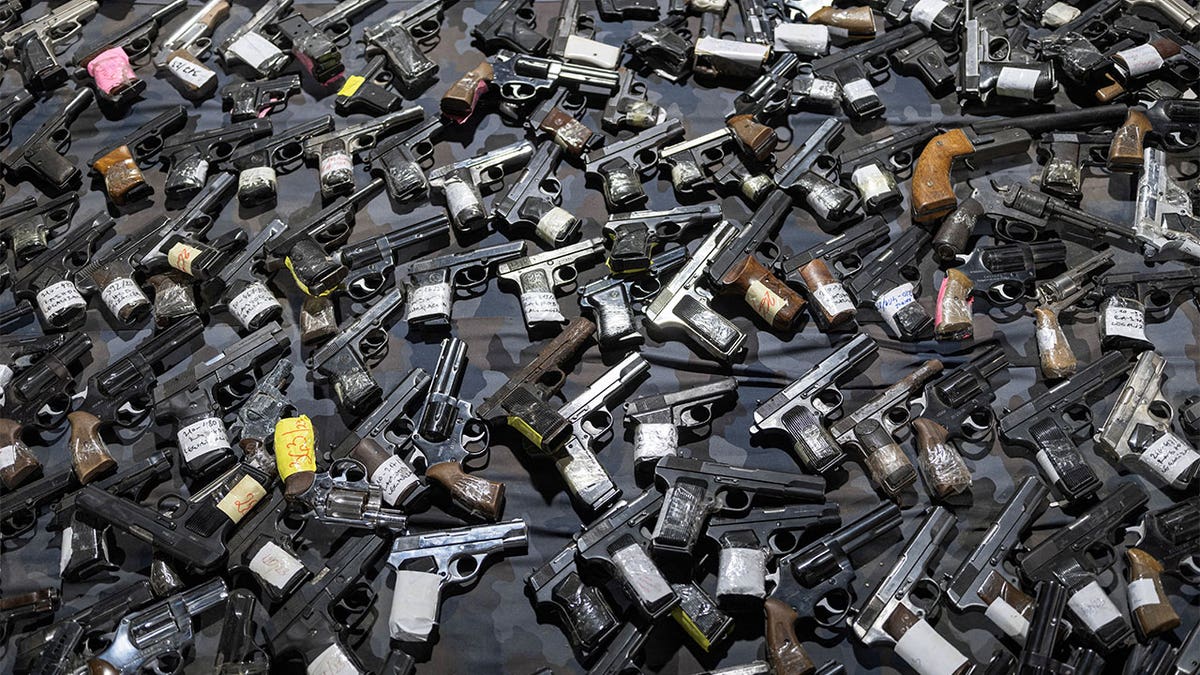
Weapons handed over to police in the first ten days of gun amnesty are pictured in police storage following mass shootings in the country, near Smederevo, Serbia, May 14, 2023. (REUTERS/Marko Djurica TPX)
There are 39 firearms for every 100 residents in Serbia and an estimated 2.7 million firearms are in civilian possession, including 1.5 million unregistered firearms, according to a 2018 report from the Small Arms Survey.
Perhaps in the most sweeping government action, Vucic ordered that all citizens turn in their unregistered weapons and ammunition to authorities by June 8. Anyone who fails to surrender their weapons during the one-month amnesty period will face stiff penalties and possibly even prison time.
While many in Serbia blame Vucic for the general culture of promoting violence in the media, disarming the population is mostly a welcome measure.
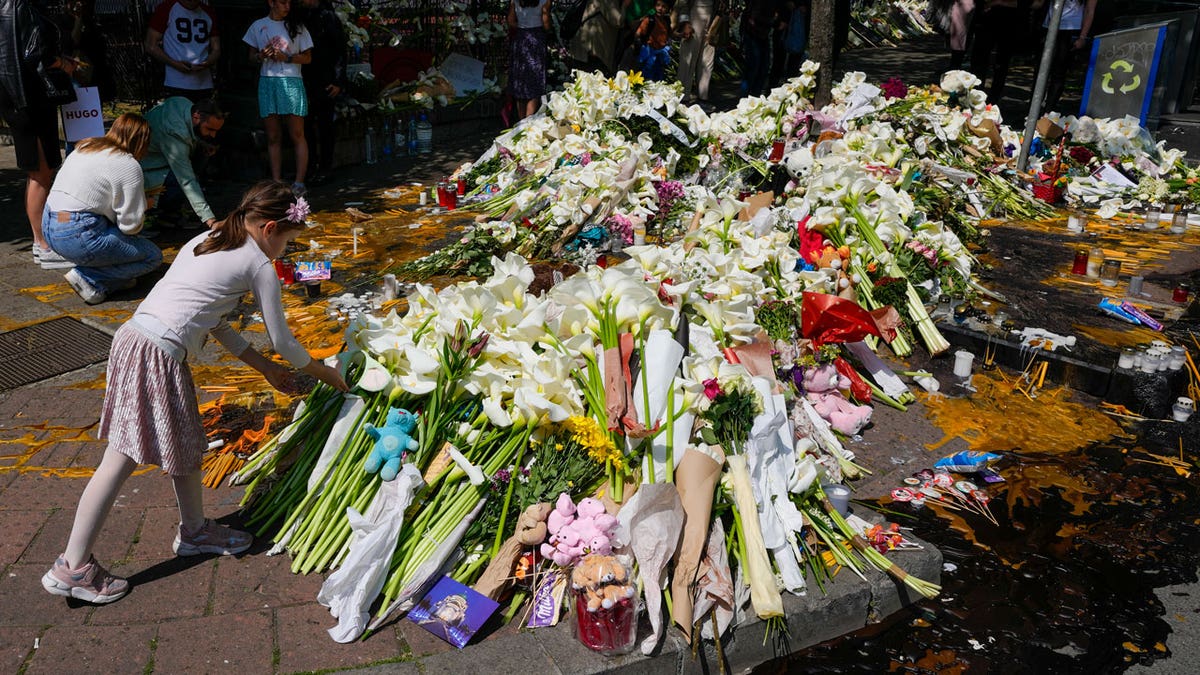
A girl lays flowers for the victims in front of the Vladimir Ribnikar school, two days after a 13-year-old boy used his father's guns to kill eight fellow students and a guard, in Belgrade, Serbia, on May 5, 2023. (AP Photo/Darko Vojinovic)
"This is probably the greatest shock and tragedy to befall on Serbian society," Helena Ivanov, associate fellow at the Henry Jackson Society, told Fox News Digital.
Day-to-day life in Serbia has nearly come to a halt as the nation remains in mourning and grapples with a new and unforeseen threat. Thousands of people took to the streets over several days to protest the outbreak of violence and demand the government take action.
Protests have recently intensified with calls for the resignation of President Vucic growing.
Opposition politicians and protesters demanded the withdrawal of national broadcasting licenses for certain TV stations. They argue that the government and allied media are stoking fear and divisions in society, spreading propaganda and broadcasting content that glorifies violence.
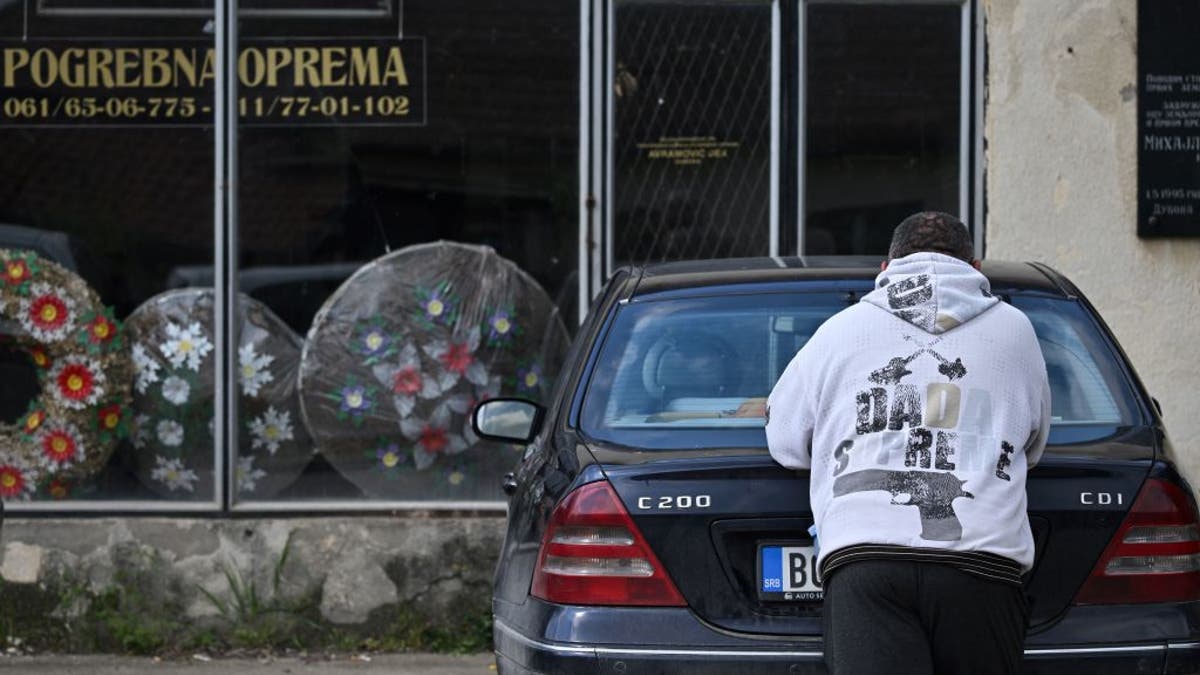
A man wearing a sweater with the representation of a gun on it, stands in front of an undertaker shop in the village of Dubona near the town of Mladenovac, about 37 miles south of Serbia's capital Belgrade, on May 5, 2023, in the aftermath of a drive-by shooting. (Photo by ANDREJ ISAKOVIC/AFP via Getty Images)
It is not uncommon for Serbian media to have convicted war criminals from the Yugoslav wars on their programming. Members of the government and ruling elite routinely use inflammatory language against political opposition and anyone who dares criticize them. Serbia’s Education Minister, Branko Ruzic, has so far resigned after facing mounting pressure from the opposition, but there is a larger sense that much more needs to be done.
"Thus far, most of the requests of the protesters have not been fulfilled, and we are yet to see how things will develop going forward. But the situation in the country is far from good, and one gets a sense that people are on the edge," Ivanov said.
US ACCUSED OF RETREATING FROM NATO ALLY ALBANIA AS RUSSIA LOOKS TO GROW REGIONAL INFLUENCE
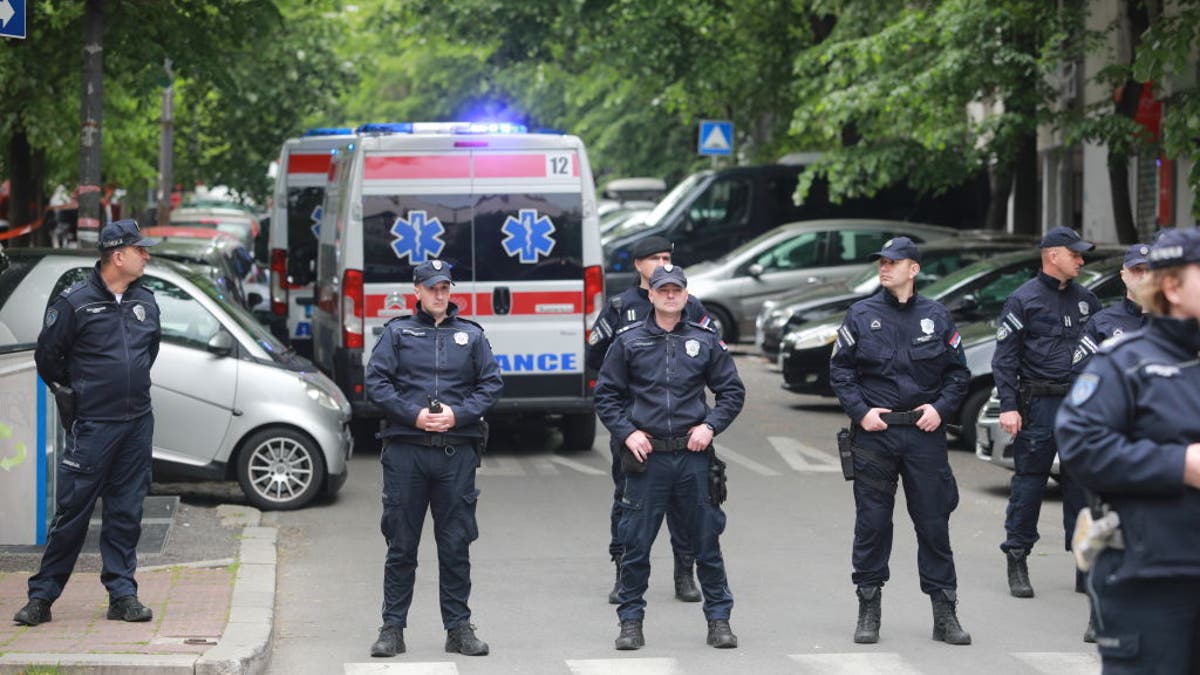
Police take security measures after a 7th grade student opened fire at the school, in Belgrade, Serbia, on May 3, 2023. It is reported that a security guard and nine children were killed in school. (Photo by Milos Miskov/Anadolu Agency via Getty Images)
Even though Serbia has a high rate of gun ownership compared to the rest of the EU, gun laws remain very strict and semiautomatic weapons are illegal. Unlike the U.S., Serbia has no equivalent of the National Rifle Association lobbying for the right to bear arms as protected by the Second Amendment.
Some analysts say Vucic, who is under pressure on multiple domestic and international fronts, wants to basically disarm Serbian society. The president proposed a moratorium on new gun permits for small arms and hunting rifles and wants legal gun owners to go through more extensive and mandatory medical and psychological examinations.
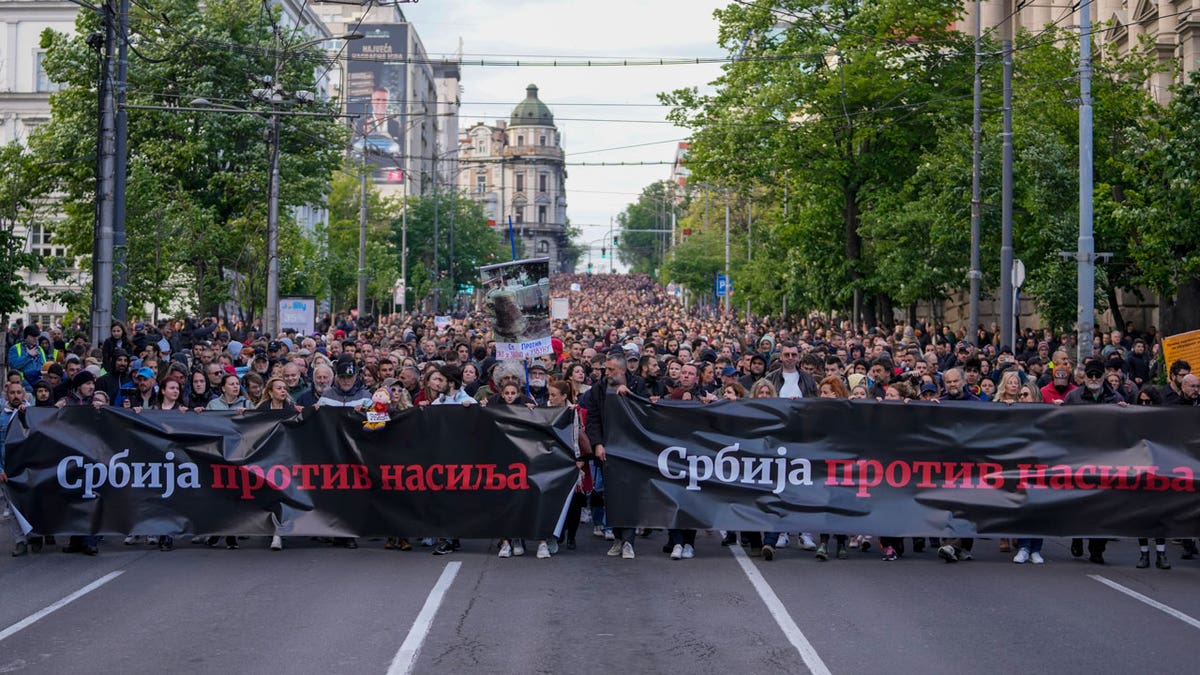
Serbs marching on Belgrade in protest of the Balkan nation's right-wing, authoritarian government following two mass shootings, were met with a counter-demonstration by allies of President Aleksandar Vucic. (AP Photo/Darko Vojinovic)
"Indeed, the right to bear arms or carrying weapons more generally is really not celebrated nor encouraged in Serbia. Quite the contrary, while Vucic is facing lots of criticism when it comes to his response to the two mass shootings, his decision to disarm civilians has not really been criticized," Ivanov noted.
Many Serbs protesting in the streets believe it is more necessary to address the root causes of violence rather than taking measures such as stricter gun laws. Despite the general popularity of surrendering illegal weapons, it is still unclear if the government mandate will yield any tangible results.
CLICK HERE TO GET THE FOX NEWS APP
"It is limited to a one-month period, and it is unrealistic to expect that over one million illegally possessed firearms will be turned in within such a short timeframe," Predrag Petrovic, Research Director of the Belgrade Center for Security Policy, told Fox News Digital.
Speaking to reporters on Sunday, President Vucic said that since the announcement, over 68,000 weapons and explosive devices were voluntarily surrendered to authorities. The hand-over of the illegal weapons is seen by many as a step in the right direction, but as Petrovic notes, the number of weapons surrendered compared to the number of weapons in society is "just a drop in the ocean."










































